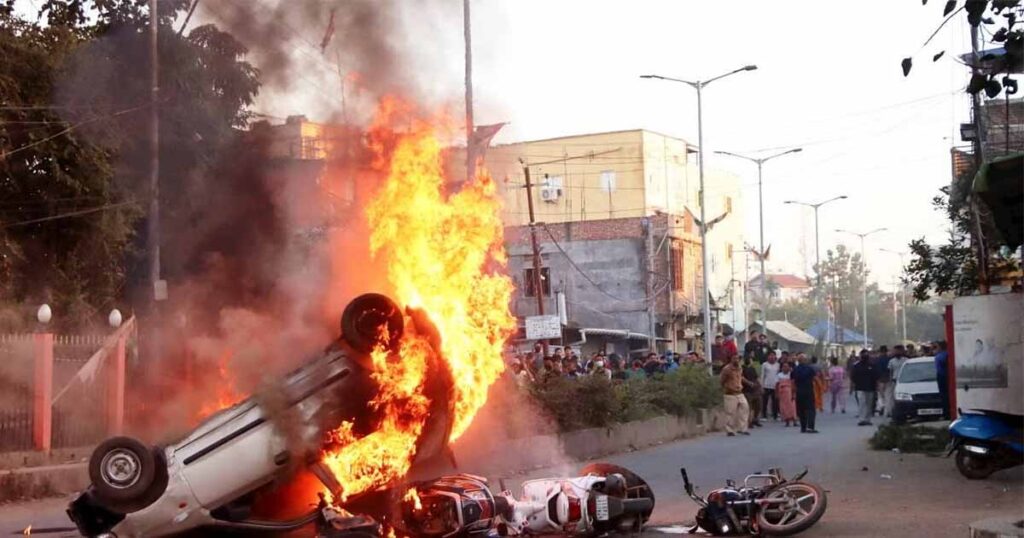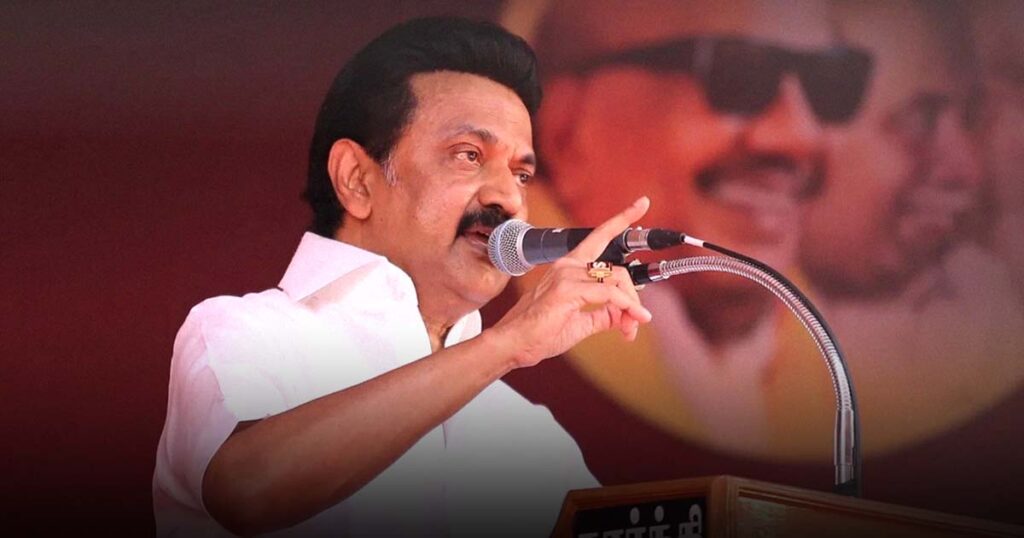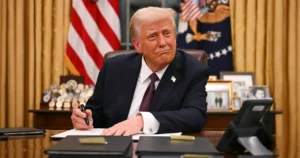In a strongly worded statement, the Dravida Munnetra Kazhagam (DMK), a prominent political party from Tamil Nadu, has sharply criticized the BJP-led central government for its handling of two crucial issues: the delay in conducting the caste census and the ongoing violence in Manipur. The DMK’s statement comes amidst rising concerns within the state and across India regarding the government’s approach to social justice and national security.

Key Issues Raised by the DMK
The DMK has accused the central government of neglecting critical matters affecting marginalized communities, with a particular focus on the caste census, and failing to manage the deteriorating situation in Manipur. The party’s stance highlights ongoing political tension between regional parties and the BJP, which has been accused of not adequately addressing the needs and concerns of the states.
1. Delay in the Caste Census: A Step Backward for Social Justice
One of the primary points of contention raised by the DMK is the prolonged delay in conducting the caste census, a long-promised initiative that is seen as vital for understanding the socio-economic conditions of various caste groups in India. For decades, political leaders and social reformers have advocated for a caste-based enumeration to assess the backwardness of different communities, especially Scheduled Castes (SC), Scheduled Tribes (ST), and Other Backward Classes (OBC). Such data is crucial for formulating targeted welfare policies and ensuring equitable development.
- Political and Social Ramifications:
The caste census has been a contentious issue, with several political parties and social organizations pressuring the government to include this data in the national census. The DMK, being a champion of the rights of OBCs and marginalized groups, has criticized the BJP for its reluctance to carry out the survey. The delay, the DMK argues, is part of a broader agenda to sideline the socio-economic realities faced by these communities. - Impact on Welfare Programs:
Without comprehensive caste-based data, the government faces challenges in designing and implementing effective social welfare programs, reservations in education, and employment opportunities for these communities. The DMK’s criticism reflects broader demands from regional parties and social activists who argue that this data is essential to address historical inequalities.
2. Manipur Violence: A National Security Crisis
Another issue that the DMK has raised is the handling of the violence and unrest in Manipur, a northeastern state in India. The region has been plagued by ethnic and communal violence for several months, with clashes between the Meitei and Kuki communities leading to significant loss of life and displacement. The DMK has accused the central government of not doing enough to restore peace in the region and prevent further escalation.
- Escalating Crisis in Manipur:
The violence in Manipur has caused widespread humanitarian crises, with many innocent civilians caught in the crossfire. The state’s police forces and local authorities have struggled to contain the violence, and the DMK argues that the federal government has not provided sufficient support in terms of military deployment, peacekeeping efforts, or diplomatic engagement with the communities involved. - Central Government’s Response:
The BJP-led government has faced intense scrutiny for its failure to address the violence swiftly and effectively. Critics argue that the central government’s response has been slow, and the lack of a robust plan to manage the crisis has exacerbated the situation. The DMK’s statement calls for a more decisive intervention to ensure peace, security, and stability in Manipur, highlighting the need for stronger federal leadership. - Humanitarian Concerns:
The ongoing violence has displaced thousands of people, and humanitarian organizations have warned about the deteriorating conditions in refugee camps. The DMK has expressed deep concern over the lack of adequate relief and support for the victims of the violence.
DMK’s Broader Critique of BJP’s Governance Style
While these two issues form the crux of the DMK’s criticism, the party’s statement is also an indictment of the broader governance approach of the BJP-led central government. According to the DMK, the BJP’s policies favor a narrow, centralized form of leadership that ignores the diverse needs of India’s states and regions.
- Centralization vs. Federalism:
The DMK has consistently championed federalism, arguing that states should have greater autonomy to manage their affairs. The party views the BJP’s actions as undermining this principle, which has been a cornerstone of India’s political structure since independence. The delay in the caste census and the mishandling of Manipur’s violence are seen as examples of the BJP’s disregard for regional concerns and local governance. - Social Justice and Inclusive Governance:
As a party committed to social justice, the DMK has long advocated for policies that empower marginalized groups, particularly in the context of the backward classes, Dalits, and tribal populations. The DMK has been outspoken in its belief that a government committed to inclusive governance must actively work to uplift disadvantaged sections of society and ensure their voice is heard at every level of policy-making.
Implications for the 2024 Elections
The DMK’s statement also carries significant political implications in the lead-up to the 2024 general elections. By criticizing the BJP on issues related to caste census and Manipur, the DMK is positioning itself as a defender of social justice and regional autonomy. The party is rallying not only the Tamil Nadu electorate but also appealing to other states and regional parties that share similar concerns about the BJP’s centralized approach.
- Regional Parties in the Opposition:
The DMK’s critique could galvanize support among regional parties that are also critical of the BJP’s governance style. The caste census issue, in particular, could become a key talking point in the opposition’s campaign, with several parties across India pushing for better representation and more robust social welfare schemes for backward communities. - Focus on National Security:
The criticism of the BJP’s handling of Manipur signals that national security, peace, and stability in regions affected by violence will be critical issues in the upcoming elections. The DMK is likely to continue highlighting these concerns to appeal to voters who prioritize security and conflict resolution.
Conclusion: A Divisive Political Standoff
The DMK’s condemnation of the BJP-led central government over the caste census and the handling of violence in Manipur is part of a larger political strategy to assert its position as a champion of social justice and federalism. The statement has sparked debates across India about the role of the central government in addressing regional issues, particularly those related to marginalized communities and national security. With the 2024 elections fast approaching, these issues are set to dominate political discourse, further intensifying the political standoff between the DMK and the BJP.






